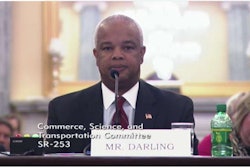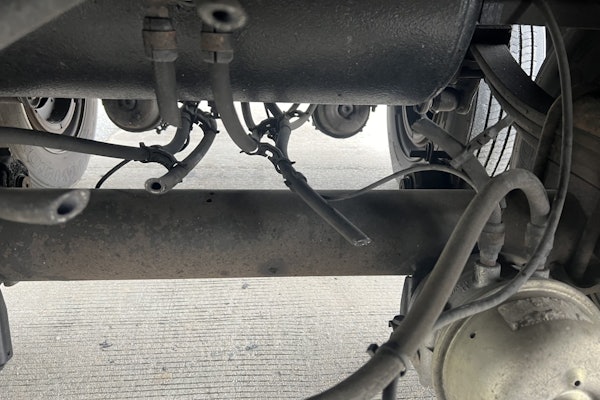
Turns out the 34-hour restart-related item in the late-2015 Congressional appropriations bill may have done a little more than was intended. The intent of the item was to reinforce the stay of enforcement of limitations on use of the 34-hour restart that were implemented in 2013 and which the Federal Motor Carrier Safety Administration continues to study as to their effectiveness, as required by law.
But read what the appropriations bill actually states relative to the restart, and it becomes clear that not only did it extend that stay and put limitations on FMCSA’s ability to reinstate the restrictions — once-per-week use of the restart and inclusion of two 1-5 a.m. periods — it essentially nullified the restart entirely.
Here’s what the appropriations bill says (the final report mentioned would be the as-yet-unissued report from the recently concluded study of safety effects of the pre-change restart versus the post-change, limited restart):
None of the funds appropriated or otherwise made available by this Act or any other Act may be used to implement, administer, or enforce sections 395.3(c) and 395.3(d) of title 49, Code of Federal Regulations, and such section shall have no force or effect on submission of the final report issued by the Secretary…
That’s the key part of this, and what exactly does 395.3(c) and 395.3(d) refer to? Those are, essentially, everything in the regulations pertaining to the restart. And since the appropriations bill’s language doesn’t specify an alternative to those regulations, as the Truckload Carriers Association noted this afternoon in a message to members…
…then there is no restart provision to abide by.
That’s DOT’s recent interpretation at least, according to TCA. Now, before you go back to recapping entirely, take note of the rest of that message from TCA:
As discussions around this issue remain fluid, we are instructing our carrier members to keep their fleets operating as they have always been as members of Congress seek to reach an agreement on the best way to proceed. In an email to its Executive Committee, of which TCA is part, ATA has put forth options which they can use to negotiate with lawmakers. Of those options, the parties involved, including TCA representatives, have selected what ATA perceives to be the most flexible option on the table. The selected option consists of the following:
Total weekly cap of 75 hours in any 7 calendar days
- Retains 60/7, 70/8 rules.
- Taking an off-duty period of 34 consecutive hours or more allows the driver to exceed the 60/7 & 70/8 limits, up to the 75-hour, 7-calendar-day cap.
We’ll update more when we have word of any final solution, as changes wouldn’t go into effect until certified by DOT in concert with lawmakers. As TCA noted, “as of today, we are continuing to operate as we did yesterday.”
At once, reminds me of Tom Strese‘s sage words from about a year ago as the exemptions to the milk-and-cookie break really started to pile up: If we’re not careful, Strese said, “pretty soon our HOS rules are going to look like the tax code.”
Can you live without the restart? Keep it simple, so to speak — or as simple as recapping can be? Stay tuned for more…










